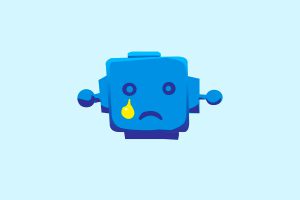REAL FAKE NEWSLETTER – ISSUE #127
September 5, 2023
How the AI Revolution Will Reshape the World
“Over millennia, humanity has been shaped by successive waves of technology. The discovery of fire, the invention of the wheel, the harnessing of electricity—all were transformational moments for civilization. All were waves of technology that started small, with a few precarious experiments, but eventually they broke across the world. These waves followed a similar trajectory: breakthrough technologies were invented, delivered huge value, and so they proliferated, became more effective, cheaper, more widespread and were absorbed into the normal, ever-evolving fabric of human life. […] We are now facing a new wave of technology, centered around AI but including synthetic biology, quantum computing, and abundant new sources of energy. In many respects it will repeat this pattern.”
We are about to see the greatest redistribution of power in history.
What Happens When AI Passes Through the ‘Uncanny Valley’?
“AI is not a representation of humanity. It is a representation of the digital version of humanity, which is an aberration or an exaggeration of what we are. That raises the possibility that we may be entering a world in which artificial versions of reality appear more real than reality itself.”
Is the AI Boom Already Over?

”Recent reports suggest that consumers are starting to lose interest: The new AI-powered Bing search hasn’t made a dent in Google’s market share, ChatGPT is losing users for the first time, and the bots are still prone to basic errors that make them impossible to trust. In some cases, they may be even less accurate now than they were before. A recent Pew survey found that only 18 percent of US adults had ever used ChatGPT, and another said they’re becoming increasingly concerned about the use of AI. Is the party over for this party trick?”
Is it really over? ChatGPT is part of my daily workflow now. It acts as the perfect assistant while writing our new book.
AI Could Choke on Its Own Exhaust as It Fills the Web

“The internet is beginning to fill up with more and more content generated by artificial intelligence rather than human beings, posing weird new dangers both to human society and to the AI programs themselves. […] The danger to human society is the now-familiar problem of information overload and degradation. […] The danger to AI itself is newer and stranger: model collapse, Model Autophagy Disorder and Habsburg AI.”
I have written extensively about the inbreeding effect of AI. This article sums it all up.
Why Does Everyone on Tiktok Talk Like That?
The common TikTok voice is often “high-pitched, breathless, youthful, with over-emphasised keywords and sequences, slightly odd speeded-up and slowed-down sequences, and coy intonation and body language.” This kind of uptalk is supposed to draw the audience’s attention in. To me it’s just annoying…
NFTs, Once Hyped as the Next Big Thing, Now Face ‘Worst Moment’

People had a hard time to grap the utility of NFTs, now if you look at the charts, everything is down. Is this the end of NFTs?
Social Media Is Dead

You have this really interesting countermovement backwards into these much smaller and much more hyper-specific communities.
“Social media promised to create an intricate web that brought us all closer to one another, but the wave of exposure led to an openness that many people just aren’t interested in. Most people wouldn’t let the first person they stop on the street sift through their camera roll. They want their achievements, failures, and little life moments to be kept sacred. So after a decade of airing our most intimate moments in public, the pendulum is shifting back. People are more selective with their communities and are reverting back to an old-school way of interacting. It’s hard to know how the change will affect the online atmosphere over the long term — some evidence suggests the shift will create a healthier digital experience, but it also risks further dividing people into like-minded echo chambers.”
The Problem With Counterfeit People

Companies using AI to generate fake people are committing an immoral act of vandalism, and should be held liable.
“These counterfeit people are the most dangerous artifacts in human history, capable of destroying not just economies but human freedom itself. Before it’s too late (it may well be too late already) we must outlaw both the creation of counterfeit people and the “passing along” of counterfeit people. The penalties for either offense should be extremely severe, given that civilization itself is at risk.”
Interesting viewpoint. Who is responsible for the misconduct of fake people? Their creators or the companies that have provided the software to build them?

 English | EN
English | EN 